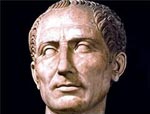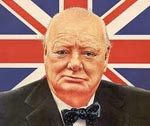
There’s a common fallacy among the mainstream that success happens quickly.
One reason why it looks this way is because success seems to happen almost instantly – like an explosion. Gangnam Style gaining a billion views on YouTube, What Does the Fox Say going viral, 13 things mentally strong people avoid being covered on Forbes, and so on.
These are recent online examples where success did happen almost instantly.
But what most people don’t think about is that these occurrences are not the rule – they are the exception. These examples are extremely rare. It’s just that they’re the ones you notice – just as you notice the big time lottery winner being shown on TV, but not the thousands of people who bought lottery tickets and drew blank.
This occurrence is explained by the availability heuristic.
We see a disproportionate amount of winners, while not seeing how many losers there are. This distorts our view and makes it seem like it’s easier to become successful that it really is.
Another example of the availability heuristic is that most people are more afraid of flying than they are of driving a car, because they think flying is riskier. But it’s not –it’s just that whenever a plane crashes or explodes, it’s newsworthy, which means that you’re much more likely to hear about it.
A little car accident on the other hand is not newsworthy. Car crashes happen every day, but you’re still a lot less likely to hear about them.
The Greatness of Julius Caesar?
By the exact same logic – because of the availability heuristic – many people get a distorted view of historic men, such as Julius Caesar.They think: “Well, of course it was easy for Caesar – C’mon he was Caesar! He crossed the Rubicon, he came, he saw, and he conquered!”
Then they think: “But I’m no Caesar, I’m just little old me… How could I possibly do something remarkable like that?”
If they had studied Caesar more closely they would understand that it wasn’t necessarily easy for him. They would also understand that he spent years practicing public speaking, years networking with the right people, and years studying politics.
Caesar also borrowed enormous sums of money. He borrowed more money than he was statistically likely to ever make. He needed the money to pursue his political ambitions.
While Caesar did make that money back, many of his political peers did the same thing and were unable to repay their creditors. Some of these men resorted to suicide. But you don’t hear about that because history is written by winners.
Many things had to go right for Caesar to become the man he is now believed to have been. A lot of things could’ve gone wrong along the way – it’s just that they didn’t.
Caesar – just as Napoleon, Churchill, JFK, Mandela, and many others – has become an icon for something much greater. It’s easy to think that these men were chosen by destiny to succeed – heck, many of them even believed it themselves.
This is why you need to study great historic men – so that you to get a less distorted view about what really happened.
So that you can:- Understand that before these men became iconized they were human beings just as you are. Figure out what they did that made them brilliant.
- Understand just how many things had to fall in place for them to become the icons they are now regarded as. See how many losers there are for each historic winner.
- Understand that they too went through many hardships, just as you do now. But they overcame these hardships by being creative and putting in a ton of effort.
Going Through Hardships
Julius Caesar
 When
Caesar was sixteen years old his father died, making him the new man of
the family. At eighteen, Caesar was forced to divorce his wife Cornelia
by the Roman dictator Sulla.
When
Caesar was sixteen years old his father died, making him the new man of
the family. At eighteen, Caesar was forced to divorce his wife Cornelia
by the Roman dictator Sulla.Caesar refused to obey the most powerful man in the Roman Empire and as a result had to go on the run with a bounty on his head equivalent to 100 yearly wages of a Legionnaire.
Napoleon Bonaparte
 Before
Napoleon Bonaparte was acknowledged as a military genius at around age
20, he spent a considerable amount of time walking the streets
aimlessly, dressed in shabby clothes. He even wrote a pathetic copy of
the book The Sorrows of The Young Werther. In Napoleon’s book
the protagonist was a version of himself instead of Werther. The book
ended with the young male protagonist – a French soldier – killing
himself because he was unlucky in love.
Before
Napoleon Bonaparte was acknowledged as a military genius at around age
20, he spent a considerable amount of time walking the streets
aimlessly, dressed in shabby clothes. He even wrote a pathetic copy of
the book The Sorrows of The Young Werther. In Napoleon’s book
the protagonist was a version of himself instead of Werther. The book
ended with the young male protagonist – a French soldier – killing
himself because he was unlucky in love.Vincent van Gogh
 For
as long as he lived, Vincent van Gogh never achieved the recognition
that he so desperately craved as an artist. His life story is one of the
most tragic in history. He was so poor that he couldn’t even afford his
own brushes and canvases, but repeatedly had to write letters asking
his brother for money. The same paintings that van Gogh then traded for
a warm meal and a place to stay for the night are now traded for
millions of dollars.
For
as long as he lived, Vincent van Gogh never achieved the recognition
that he so desperately craved as an artist. His life story is one of the
most tragic in history. He was so poor that he couldn’t even afford his
own brushes and canvases, but repeatedly had to write letters asking
his brother for money. The same paintings that van Gogh then traded for
a warm meal and a place to stay for the night are now traded for
millions of dollars.Van Gogh never saw much success during his short life, but he never stopped believing in his own abilities. He is the perfect example of a man whose life has become iconized and distorted after his death.
Winston Churchill
 The young Winston Churchill
sought out as many war zones as possible in pursuit of adventure. He
risked his life over and over and survived only through coincidence and
freakish luck. Thousands of other people died where he survived time and
again.
The young Winston Churchill
sought out as many war zones as possible in pursuit of adventure. He
risked his life over and over and survived only through coincidence and
freakish luck. Thousands of other people died where he survived time and
again.Did Churchill learn his lesson, pack up, and go back home to safety?
No. He kept it up until he was eventually captured as a POW and imprisoned in Pretoria. When the rest of the British inmates chickened out, Churchill escaped by himself and nearly died from starvation in the process.
What’s the Point?
Do you see how strongly these men must have wanted to become successful?Strong enough for them to risk their lives repeatedly.
Ask yourself:
What price are you willing to pay for being able to do what you want to do and become successful at it?
The Reason You Should Study Highly Successful People
Why should you take time out of your busy life to read about these remarkable men?1. To learn more about them and understand how they overcame their shortcomings.
For example:–Churchill lisped and was unable to spontaneously retort to political opponents. He had to write and practice every little thing he was going to say. Do you see what a huge impediment this constitutes to a politician?
Yet Churchill overcame this by spending hours preparing in advance the things he would say to his opponents in parliament.
If an opponent unexpectedly said something clever Churchill knew that he was screwed, so he had to try to anticipate everything that would come up – and practice a counter argument until he had it memorized. He described this process as preparing ammunition, where some of the things he had prepared would work, and some wouldn’t.
2. To become inspired as result of teaching your mind that it is possible for one man to have a profound impact on the world.
By getting a clearer view of the lives of these historical men you get a much better understanding of what success means – and what it takes to accomplish it.Studying these men teaches you that someone who aims his life at a very specific purpose – a man who fine-tunes his actions by consistently putting in that tiny bit of extra effort every day –is likely to become successful.
But here’s the thing:
Most people don’t even believe that they can do the things they’d like to do. So they’re rarely motivated to remain completely consistent.
The difference between these historically great men and average people lies in consistency and luck. They were fiercely consistent in practicing their skills, meeting influential people, and reading books every day for many years.
You can do nothing about luck, but consistency can be mastered.
“Luck is what happens when preparation meets opportunity.” - Seneca
The next time you struggle with willpower or consistency – remind yourself of the following:
1. The availability heuristic is making it seem like success is easier, and happens more quickly, than it really does.
2. Some of the greatest men in history had it far worse than you do and they still managed to turn it around.
3. These men overcame their shortcomings by being more creative and more consistent than their peers. They stuck to their crafts day in and day out for many years.
And if that doesn’t help you there one more trick that you can use:
— View your current situation as if you were reading a biography written about yourself hundreds of years from now on.
Ask yourself many times daily:
What would that biography say?


































Thanks a lot for your interest, really appreciate.
ReplyDeleteThanks for your encouragement, really appreciate your comment. love to hear more of it. thanks once again.
ReplyDelete